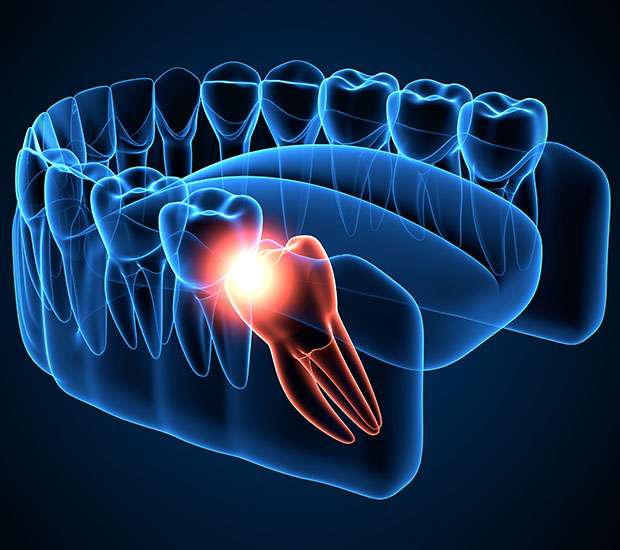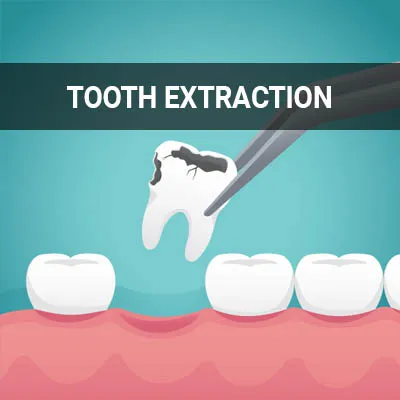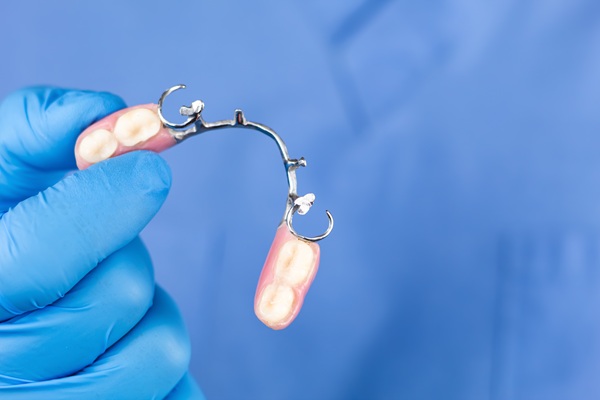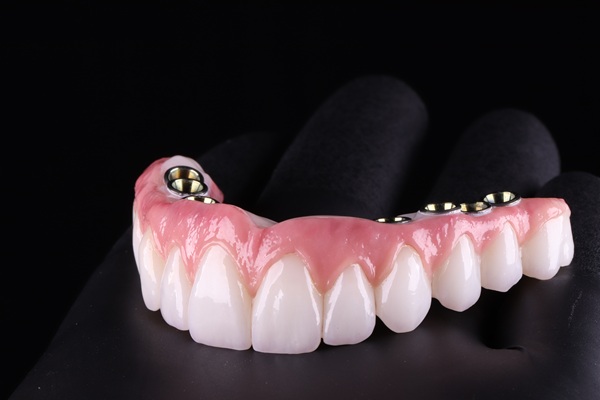Wisdom Teeth Extraction Dumont, NJ
Wisdom teeth extraction can help to relieve pain in a patient's teeth that results from the wisdom teeth causing crowding issues or growing incorrectly. There are many different reasons you may need to extract your wisdom teeth. Wisdom teeth extraction removes the third set of molars in the back of your mouth.
Wisdom teeth extraction is available at Dumont Family Dental in Dumont and the surrounding area. Most patients who need wisdom teeth extraction are in the stages of young adulthood. Call us today at (201) 374-7202 to learn more and schedule an appointment.
Understanding Wisdom Teeth Extraction
"Wisdom teeth" is the colloquial term for the third set of molars that sit in the back of the mouth. They are called such because they come between the more "mature" ages of 17 and 21. The emergence of wisdom teeth can be uncomfortable, even if they are emerging correctly. Wisdom teeth do not always necessitate extraction. On the contrary, properly aligned wisdom teeth may assist in chewing.
However, if there is no adequate space for the wisdom teeth to emerge or if the teeth are coming through in the wrong position, they may become impacted (or trapped in the jaw or under the gums). This may cause cysts, damage to neighboring teeth, gum disease, infection, pain, tooth, decay, and tumors. A dentist needs to monitor the patient's wisdom teeth and determine the best course of action.
“”Wisdom teeth” is the colloquial term for the third set of molars that sit in the back of the mouth.”
What to Know Before Wisdom Teeth Extraction
Wisdom teeth extraction is commonly performed and generally safe when carried out by qualified doctors. However, like any other surgery, it does carry a small risk of complications. These include bleeding, dry socket, and infection. Our team will do everything we can to minimize these risks even further. However, patients should contact our office immediately if they find themselves experiencing any of the following symptoms after their extraction:
- Absent or dislodged blood clot at the extraction site after surgery
- High temperature
- Yellow or white discharge from the extraction site
- Persistent pain and swelling
- Persistent, heavy bleeding that does not subside over time
- Throbbing pain in the gum or jaw
- Unpleasant smell or taste in the mouth
Most potential complications following wisdom teeth extraction are easily treatable when reported to the doctor.
“Wisdom teeth extraction is commonly performed and generally safe when carried out by qualified doctors.”
Preparing for Wisdom Teeth Extraction
The first step to wisdom teeth extraction begins with an initial consultation. During this time, patients should be open and honest with their doctor about their entire medical history. This includes but is not limited to sharing any health problems they may have, any medications and supplements they may take regularly, and any lifestyle choices that may influence the success of the surgery. The consultation is also a good time for patients to assuage their anxieties by asking any questions about the procedure.
“The first step to wisdom teeth extraction begins with an initial consultation.”
Check out what others are saying about our dental services on Yelp: Wisdom Teeth Extraction in Dumont, NJ
Process of an Extraction
The process of wisdom tooth extraction differs from patient to patient, depending largely on their age and the way the teeth have erupted in the mouth. There are two types of extractions: simple and surgical. A simple extraction is a minor procedure for patients with visible and easily accessible wisdom teeth and only requires local anesthesia. A surgical extraction is more complicated as the wisdom teeth lie beneath the gums and require small incisions to reach. We may administer a general anesthetic or IV to keep patients asleep during the procedure.
During a simple extraction, we use a special tool called an elevator to loosen the tooth out of its socket. We will place gauze behind the extraction site and towards the throat to prevent accidental swallowing of the extracted tooth. During a surgical extraction, we start by making small incisions to expose the tooth before removing the tooth piece by piece. In other cases, we may use the elevator to remove it as a whole, depending on its placement in the gums.
“During a simple extraction, we use a special tool called an elevator to loosen the tooth out of its socket.”
Questions Answered on This Page
Q. What are the potential risks of wisdom teeth extraction?
Q. How do I begin preparing for wisdom teeth extraction?
Q. What is the process of an extraction?
People Also Ask
Q. What happens during a tooth extraction procedure?
Q. What other preventative services are available?
Q. How can someone find out what procedures their dental insurance covers?
Q. What is the difference between a dental checkup and a dental cleaning?
Aftercare for Wisdom Teeth Extraction
Patients should expect to rest for the remainder of the day following their wisdom teeth extraction. Though regular activities can be resumed as soon as the day after, patients should refrain from any strenuous activity for at least a week following their procedure. Otherwise, they run the risk of overexertion and dislodging the blood clot. Our team will provide patients with a customized recovery plan for their specific procedures.
Complications following wisdom teeth extraction are rare as long as patients follow this plan. However, patients should contact us immediately if they are experiencing any of the following:
- Blood or pus in nasal discharge
- Difficulty swallowing or breathing
- Excessive bleeding
- Fever
- Foul taste in the mouth
- Persistent numbness or loss of feeling
- Pus in or oozing from the socket
- Severe pain that does not subside
- Swelling that does not subside after two or three days
“Though regular activities can be resumed as soon as the day after, patients should refrain from any strenuous activity for at least a week following their procedure.”
Frequently Asked Questions
Q. What is the average age of patients who remove their wisdom teeth?
A. Wisdom teeth generally erupt between the ages of 17 and 21 but can also come out later in life. We like to examine all patients from the age of 17 onwards to monitor their tooth development and detect wisdom teeth eruption as soon as it occurs.
Q. How do I know if my extraction site is healing correctly?
A. Recovery time after an extraction is between three to five days, wherein the socket should begin to close in. It could take about a month or two for the entire site to close. However, if the gums look and feel normal (no swelling or redness), the site should be healing correctly. We like to schedule follow-ups after an extraction to make sure the site is healing properly.
Q. How can I detect dry socket if I do not have pain?
A. In most cases, patients will experience pain from a dry socket. They may also experience a foul smell or notice exposed bone. A dry socket occurs when a blood clot was dislodged earlier than necessary or did not form at all, exposing the bone underneath. Therefore, if a blood clot is not present, a dry socket is very likely.
Q. Can I drive myself back home after wisdom teeth extraction?
A. Patients undergoing a simple extraction with local anesthesia can drive back home as they will only feel numb in the mouth. However, surgical extractions with general or IV anesthesia will need to be driven back after the procedure as they will not be fully alert. We will discuss this during the consultation appointment prior to the procedure.
Q. Can I remove all four wisdom teeth in the same visit?
A. Patients that need all of their wisdom teeth removed can have them all removed in one visit. We may also recommend extracting two on the same side during each visit as the entire area will be numbed anyway. This will reduce the cost, recovery time, and discomfort associated with each extraction.
Dental Terminology
Helpful Related Links
- American Dental Association (ADA). Glossary of Dental Clinical Terms. 2024
- American Academy of Cosmetic Dentistry® (AACD). Home Page. 2024
- WebMD. WebMD’s Oral Care Guide. 2024
About our business, and website security
- Dumont Family Dental was established in 1973.
- We accept the following payment methods: American Express, Cash, Check, Discover, MasterCard, and Visa
- We serve patients from the following counties: Bergen County
- We serve patients from the following cities: Dumont, New Milford, Bergenfield, Tenafly, Cresskill, Demarest, Haworth, Hackensack, Englewood, Teaneck, River Edge, and Paramus
- National Provider Identifier Database (1689734162). View NPI Registry Information
- Norton Safe Web. View Details
- Trend Micro Site Safety Center. View Details
Back to top of Wisdom Teeth Extraction











